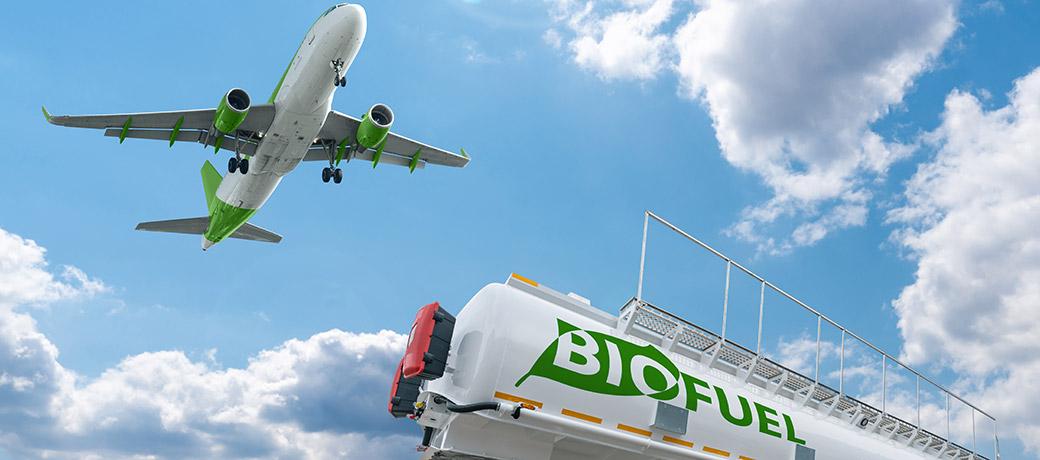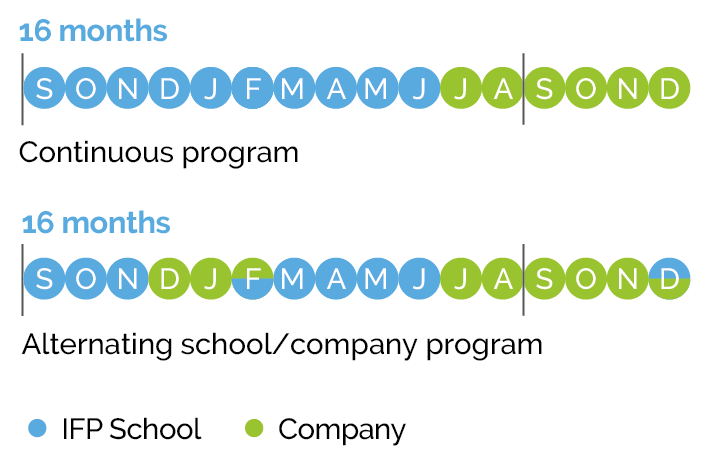
In brief
Presentation
Did you know that compatibility of an engine/fuel pairing is a critical challenge in the development of more sustainable transport? Energy efficiency of engines, hybridization, alternative fuel development: for each of these challenges, the best technological options must be developed to ensure compliance with increasingly demanding environmental standards and to meet society’s expectations. Through our Energy and Products program, you’ll play a key role in the energy transition in the field of transport and energy converters for power generation. Support these transforming industries through this multifaceted, operations-based graduate program.
The key points of the program
Career prospects for graduates
Program & planning
Program
Fuels and energy products
- Refining processes
- Conventional and alternative fuels
- Fuel logistics
- Gas, electricity production, environment
Oils and other non-energy products
- Lubrication
- Automotive lubricants
- Industrial lubricants
Engines for ground transport
- Energy conversion and engine testing
- Powertrain technology
- Combustion and reduction of pollutant emissions
Cross-disciplinary topics
- Trading, marketing and product markets
- Methodological tools
- Aeronautical and non-automotive application
Transverse skills and professional attitudes
- Experience Sharing Module
Planning
The two examples of schedules shown below correspond to the most frequently encountered cases for students in this program:
- a 16-month continuous program for students with a 4- or 5-year engineering degree,
- a 16-month alternating school/company program for students with a 5-year engineering degree.

Other situations may arise, such as:
- a 10-month continuous program for a student with a 5-year engineering degree who has already had placements for at least 4 months in a company, approved by IFP School at the time of admission;
- a 22-month alternating school/company program for an engineering student in the penultimate year of a major European school or university having signed a double-degree agreement with IFP School.
Career opportunities
Businesses
- Energy sector
- Additive and lubricant manufacturers
- Transport and equipment manufacturer sectors
- Professional committees and biofuel producers
Jobs
In the energy industry
- Development of products (fuels, lubricants, additives), in the domain of the energy transition, in oil companies, additive suppliers and lubrication firms. Purely technological profession.
- Technical support to marketing departments and sales forces: typical technical and commercial roles of a project manager. Profession with many facets, very open (at the crossroads of development, production and marketing processes).
- Energy logistics: organizing the distribution of products, from the refinery to the car's fuel tank. With oil companies and specialized businesses. Profession with many facets, very open. The other energetic products/carriers ((bio)gas, hydrogen, electricity...) are also concerned.
- Trading of products.
- Design engineer on electricity generation and storage systems.
In the transportation industry (automotive, airline, maritime...)
- Specialist product engineers in technical departments, working on engine development: (bio)fuels, lubricants; often with manufacturers, sometimes with equipment suppliers. Purely technological profession.
- Pollution abatement equipment development engineer, batteries, fuel cells (chemical engineers very welcome). Purely technological profession.
Discover the lubricants and energy sector with our graduate Clara Fabre
Clara Fabre, a graduate of the Energy and Products program (class of 2011) and Technical Director Lubricants and Energy at IMCD Group, shares her career path.
Funding & sponsorships
Typical class profile
Students in this program are almost all sponsored by companies (through apprenticeships, sponsorships or seconded professionals) that finance their living expenses during the academic period and contribute towards their tuition.
Applications for admission to IFP School and for financial support must be made concurrently. The search for financial support is a process that takes time (unsolicited requests made to companies, interviews with HR managers and operational staff, etc.).
Sponsoring opportunities
Have a look at a selection of offers proposed by our partners.
Main sponsors
Among these companies, the following have been IFP School partners in recent years (non-exhaustive list):
- Afton Chemical
- Air Liquide
- BP
- Chevron Oronite
- EDF
- ExxonMobil
- Fuchs Lubrifiant
- Renault group
- Marine nationale
- Nyco
- Raffinerie du Midi
- SEO
- Shell
- Sogefi
- Stellantis
- TotalEnergies
- Volvo Powertrain